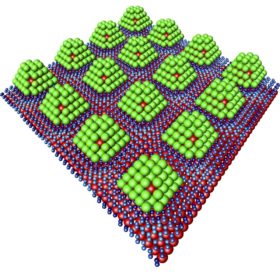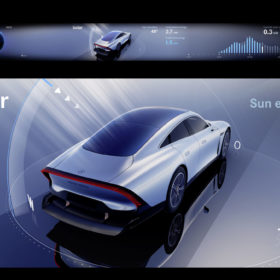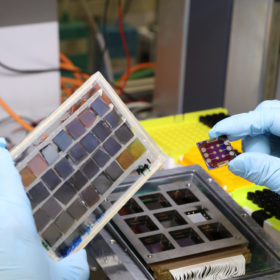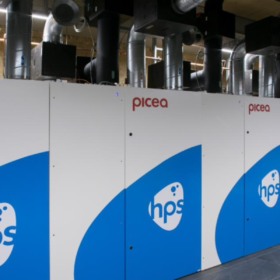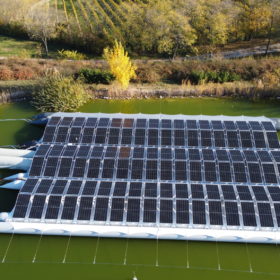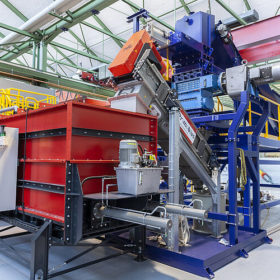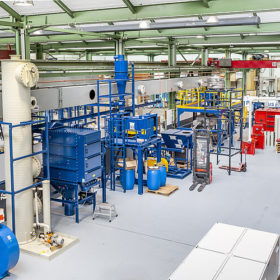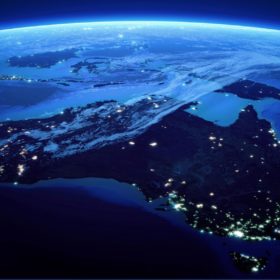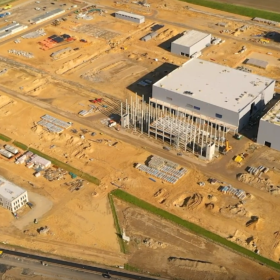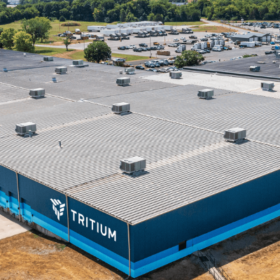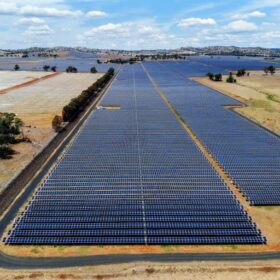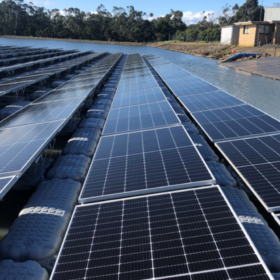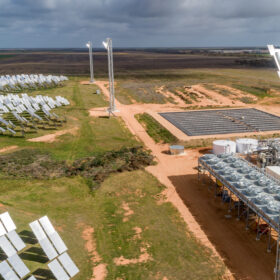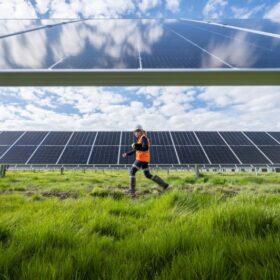Storing hydrogen with ‘nano-chocolates’
German scientists have developed a novel hydrogen storage method that relies on nanostructures – tiny nanoparticles made of the precious metal palladium – instead of high pressure and lower temperatures.
Mercedes’ newest electric car comes with thin-film solar cells on the roof
The solar roof was developed in collaboration with the Fraunhofer Institute for Solar Energy Systems.
Perovskite solar cell retains 99% of initial efficiency after 1,450 hours
Developed by German researchers, the 20.9%-efficient device was built with an architecture avoiding the use of the ionic dopants or metal oxide nanoparticles that are commonly used to contact the cell, as these can be subject to secondary reactions at higher temperatures.
New solution to store residential, commercial PV electricity as green hydrogen
Germany’s Home Power Solutions has developed a hydrogen storage solution with a capacity of up to 15,000 kWh. The Picea system stores excess electricity from rooftop PV systems in the form of green hydrogen.
Puffer fish inspired floating PV structure
With a new system for floating photovoltaic power plants, engineers from Germany want to make the application cheaper, higher-yielding, and safer. The result is somewhat reminiscent of a pufferfish, which also gave the system its name.
Germany’s new coalition wants to deploy 143.5 GW of solar this decade
The new plan would require the deployment of around 15 GW of new PV capacity each year to 2030. The agreement also includes the gradual phasing out of all coal power plants by the end of the decade.
WA company finds foothold in Germany in transformation to ‘preeminent’ global battery recycler
In the coming weeks, Western Australian mining-cum-materials recovery company Neometals will begin testing at its newly commissioned battery recycling demonstration plant in Hichenbach, Germany, the product of a joint venture with SMS Group. The Primobius facility, as it’s named, has already garnered considerable attention and is a finalist in 2022’s prestigious German Sustainability Award. “We want Primobius to be the preeminent recycler in the world,” the company’s managing director, Chris Reed, told pv magazine Australia.
Innovative Australian battery materials projects gain momentum at home and abroad
A number of Australian battery material recovery projects got off the ground this week, including the completion of Western Australian outfit Neometal’s battery recycling demonstration plant, a Queensland-Japanese joint venture studying the extraction of cobalt from copper tailings as well as the funding of Sydney-based startup Novalith.
Report finds co-located hubs key to battery industry competitiveness
A report from Australia’s Future Battery Industries Cooperative Research Centre which analysed the development of battery hubs in the U.S., Germany and Japan, has found that co-location and cooperation between industry and government were key to hub success. For Australia to play the same game, it will have to leverage its wealth of resources, and clean up its act along the way.
Umicore to purchase 42,000 tons of Australian lithium battery material
Belgian materials company Umicore has signed a contract with Australia headquartered Vulcan Energy Resources to purchase up to 42,000 tons of lithium hydroxide over a five year period beginning in 2025. The material will be used in Umicore’s production of cathode materials for lithium-ion cell manufacturers.
